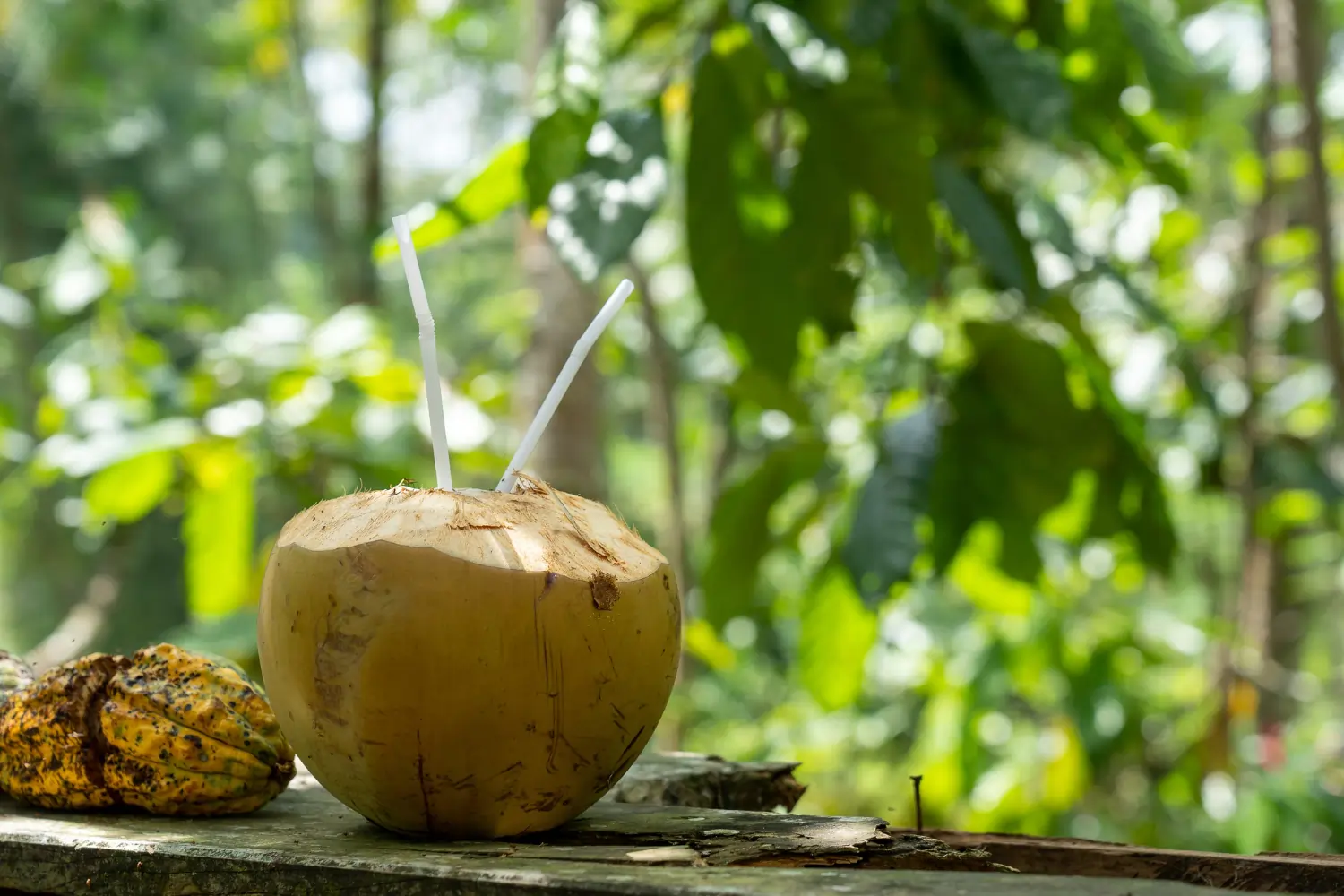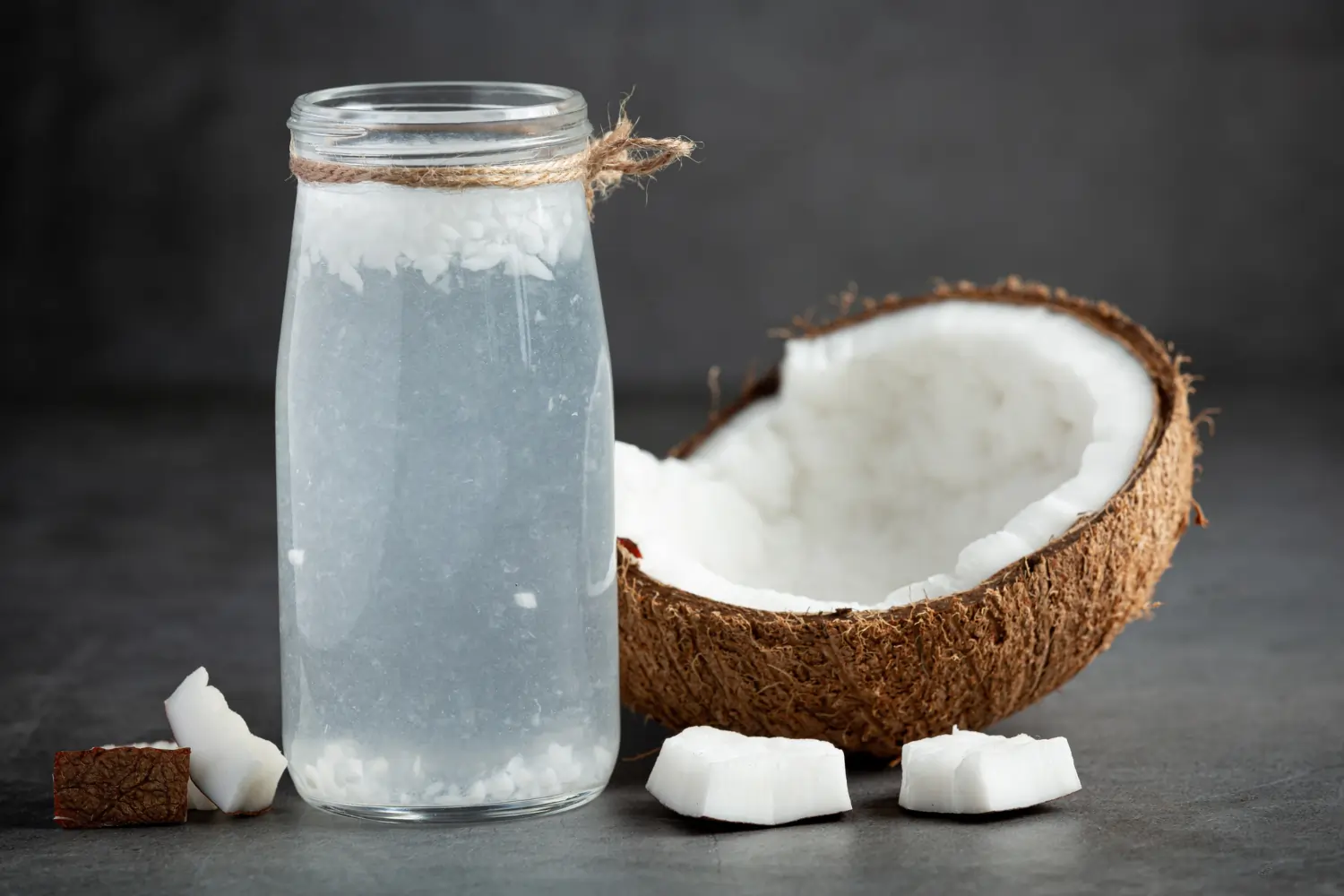
Introduction
During pregnancy, maintaining a healthy diet is paramount for the well-being of both the mother and the baby. One popular drink that has gained attention in recent years is coconut water. Known for its refreshing taste and hydrating properties, coconut water has garnered a reputation as a natural and nourishing beverage. But is it safe for pregnant women to consume? In this article, we will explore the nutritional benefits of coconut water, possible risks, and expert advice to help you make an informed decision.
Nutritional Benefits of Coconut Water
Coconut water is often touted as a natural source of electrolyte replenishment. Packed with essential minerals such as potassium, calcium, and magnesium, it aids in maintaining the body’s electrolyte balance. This can be particularly beneficial for pregnant women experiencing muscle cramps or fatigue. Additionally, coconut water’s isotonic nature makes it an excellent hydrating alternative to sports drinks or sugary beverages.
The potassium content of coconut water deserves special mention. This vital mineral plays a crucial role in maintaining healthy blood pressure levels and promoting cardiovascular health. As pregnant women are more susceptible to blood pressure fluctuations, adequate potassium intake becomes essential. Coconut water, with its high potassium levels, can contribute positively to a balanced diet.
Compared to many commercial beverages, coconut water typically has a lower sugar content. This can be advantageous for pregnant women concerned about excessive sugar intake. By choosing coconut water over sugary drinks, one can mitigate potential risks associated with gestational diabetes or unnecessary weight gain.
Is Coconut Water Safe during Pregnancy?
While coconut water offers significant nutritional benefits, certain aspects should be considered before its consumption during pregnancy. Heavy metals, such as lead or cadmium, have been found in some coconut water samples, posing potential health risks. It is imperative to choose reputable brands that prioritize quality control and regularly test their products for heavy metal contamination.
Allergic reactions can rarely occur when consuming coconut water. Individuals with allergies to tree nuts should exercise caution and consult their healthcare provider before incorporating coconut water into their diet. Being aware of any existing allergies is crucial to ensuring a safe pregnancy.
Pregnant women with any pre-existing conditions, particularly those related to blood pressure, should be cautious about consuming coconut water excessively. While coconut water can aid in stabilizing blood pressure levels, its impact may vary among individuals. It is advisable to consult a healthcare professional for personalized guidance.
Moreover, like any beverage, coconut water should be consumed in moderation. Overconsumption can lead to an imbalance of nutrients and potentially harm the digestive system. Limiting intake to a reasonable amount as part of a well-rounded diet is advisable.
Recommended Intake of Coconut Water during Pregnancy

As with any dietary choice, moderation is key when incorporating coconut water into a pregnancy diet. Healthcare professionals, including obstetricians and nutritionists, recommend consuming coconut water within safe limits to reap its benefits without undue risks. One to two servings (8 to 16 ounces) per day is generally considered appropriate. However, individual needs may vary based on factors such as activity level, overall diet, and personal health profile.
Factors such as the stage of pregnancy, existing medical conditions, and individual preferences should also be considered. Consulting with a healthcare provider can provide further guidance tailored to your specific needs.
Other Alternatives for Hydration during Pregnancy
While coconut water can be a healthy choice for hydration during pregnancy, several other alternatives are equally nourishing and refreshing.
Water should be the primary source of hydration for pregnant women. It is essential for maintaining bodily functions, promoting digestion, and aiding in the absorption of essential nutrients. Staying adequately hydrated can prevent common issues such as constipation and swelling.
Herbal infusions and caffeine-free tea are another excellent choice for hydration. Herbal infusions like chamomile or raspberry leaf tea offer the added benefit of promoting relaxation and relieving discomfort associated with pregnancy.
Fresh fruit juices can be a flavorful addition to your hydration routine, providing essential vitamins and minerals. However, it is crucial to choose freshly squeezed juices without added sugars and consume them in moderation due to their higher calorie content.
Incorporating fruits with high water content into your diet, such as watermelon or cucumbers, can also contribute to your overall hydration levels.
Expert Recommendations on Coconut Water
Obstetricians and gynecologists, along with nutritionists and dietitians, provide valuable insights when it comes to the safety and benefits of coconut water during pregnancy. Many healthcare professionals agree that coconut water can be a part of a healthy pregnancy diet, provided certain guidelines are followed.
It is essential to choose reputable brands that ensure quality control and conduct regular tests to minimize potential heavy metal contamination. Additionally, monitoring blood pressure levels, considering individual health profiles, and consulting with a healthcare provider can provide personalized guidance for optimal consumption.
Regular Water and Its Benefits during Pregnancy
While coconut water offers various advantages, it is important not to overlook the numerous benefits of regular water during pregnancy. Water is the foundation of maintaining a healthy body and plays a crucial role in sustaining bodily functions. It promotes digestion, flushes out toxins, and helps prevent common pregnancy discomforts such as constipation or urinary tract infections.
Staying well-hydrated is essential for a healthy pregnancy, as it supports the development of the baby and ensures the mother’s well-being. Drinking an adequate amount of water, approximately 8 to 10 cups per day, is recommended for pregnant women.
Conclusion
In conclusion, coconut water can be a nourishing beverage for pregnant women, providing hydration and essential nutrients like potassium. However, it is essential to consider potential risks such as heavy metal contamination and individual health conditions. Moderation is key in incorporating coconut water into your diet, and consulting with a healthcare provider can ensure personalized advice.
While coconut water presents various benefits, regular water remains the primary source of hydration during pregnancy. Adequate water intake is vital for supporting the overall well-being of both the mother and the growing baby. Remember to prioritize hydration and opt for other alternatives when coconut water is not readily available or suitable.
FAQs
1. Can coconut water replace prenatal vitamins during pregnancy?
No, coconut water cannot replace prenatal vitamins. Prenatal vitamins are specifically formulated to provide essential nutrients needed during pregnancy, such as folic acid and iron. Coconut water can complement a healthy diet but should not be relied upon as the sole source of prenatal nutrition.
2. Can coconut water help with morning sickness?
While there is no definitive scientific evidence to prove that coconut water specifically alleviates morning sickness, staying hydrated can help reduce nausea. Some pregnant women find that sipping on coconut water helps soothe an upset stomach, providing relief.
3. Is it safe to drink flavored coconut water during pregnancy?
Flavored coconut water often contains added sugars or artificial sweeteners, which should be consumed in moderation during pregnancy. Opting for natural, unsweetened coconut water is recommended to avoid unnecessary sugar intake.
4. Can coconut water prevent urinary tract infections (UTIs) during pregnancy?
While coconut water may contribute to overall hydration, preventing UTIs solely through its consumption is unlikely. Maintaining good hygiene practices and seeking medical advice at the first signs of a suspected UTI is crucial during pregnancy.
5. Are the benefits of coconut water the same for all stages of pregnancy?
The benefits of coconut water remain relatively consistent throughout pregnancy. However, individual nutritional needs may vary based on the different stages of pregnancy. Consulting with a healthcare professional can provide tailored advice based on your specific circumstances.


